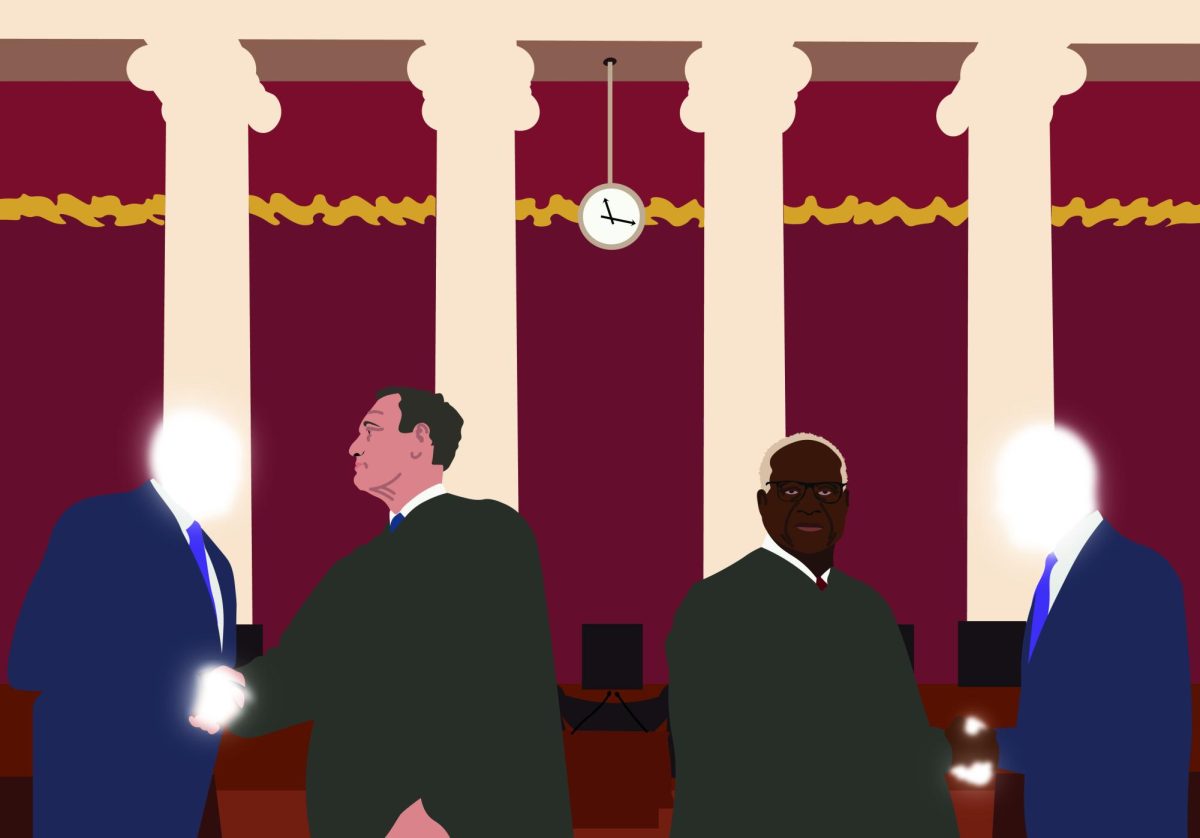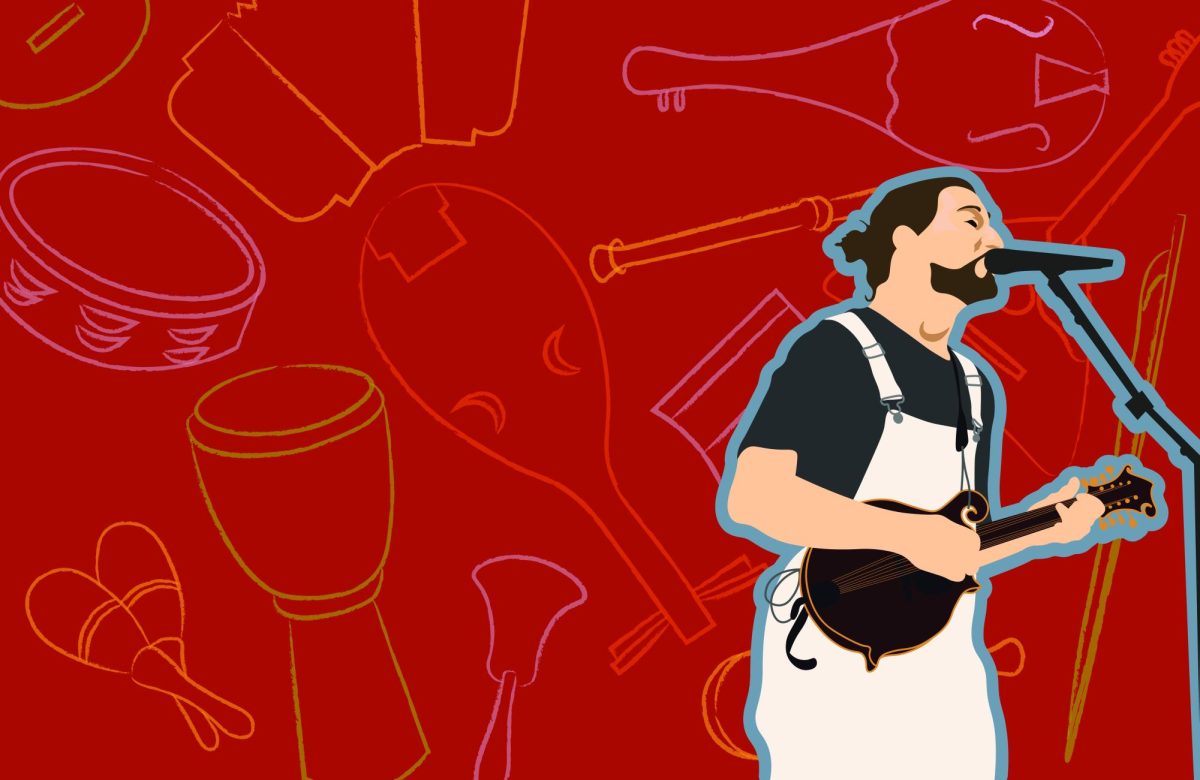There’s a lot resting on this upcoming election. That’s far from breaking news, but there might be even more at stake than you knew.
Reproductive rights, adequate K-12 funding, racial literacy in schools, increased tariffs, a continued relationship with NATO — these are all on November’s ballot. Despite all of that, the most dangerous issue on the ballot is the future of the Supreme Court.
Our democracy has long been protected by the checks and balances we’ve all known about since fifth grade — the president can veto what Congress puts before him, the president nominates judicial candidates, the Court has the power to overturn unconstitutional laws, etc. From what we’ve seen over the past few months, the current SCOTUS majority is now determined to break those barriers down. That’s not only for their own sake — it’s for Trump’s as well.
Had Biden not stepped out of the race, the presidential office would have undeniably gone to Trump. All of the choices Trump and his followers made prior to July 21 were made with that certainty in mind. Picking J.D. Vance as his running mate, granting presidential criminal immunity, allowing the first presidential debate against Biden — this was all done under the assumption that Biden would remain the Democratic candidate. Now, when facing Kamala Harris, it looks like their primary campaign strategy has pivoted in an interesting direction: pray it all works out and hope for the best.
Harris’ introduction as the new Democratic candidate has shifted the tides and allowed for a fighting chance against Trump. In the national polls, Harris is currently leading, but there’s no guarantee that she will win.
The Supreme Court has made several power grabs recently, from overturning Chevron to immunity under official acts for the president. If the unprecedented decisions they made this summer are any indication of future behavior (which they are), then there are sure to be several more verdicts that will grant them more power and more separation from the other two branches.
During Trump’s term, he was able to appoint three new justices. Brett Kavanaugh, Amy Coney Barrett and Neil Gorsuch were all handpicked by him and shared two essential traits; they are young and they are conservative. Even with the recent appointment of Ketanji Brown Jackson by Biden, SCOTUS is overwhelmingly red with six right-wing justices.
If Trump has any say in the matter, it will stay that way for a few more decades. If he is given another term in the fall, it is very likely that two of the older justices — Clarence Thomas and Samuel Alito, both deeply conservative — will step down to allow Trump to appoint younger versions of themselves. With no term limit set on SCOTUS justices, this would guarantee that the 6:3 ratio remains intact for the next decade or two.
Scandal and corruption are no strangers to the Supreme Court, with right-wing justices accepting undisclosed gifts, Thomas’ deep ties to Harlan Crow, the secret recording of Alito and so many more. Opportunism and fraud seem to be hardwired into these justices, and it should come as no surprise that they’re still seeking to expand their power.
SCOTUS is meant to be the manifestation of integrity and true justice in the U.S., interpreting the Constitution to the best of their ability. What is considered unconstitutional by both the court and the Senate seems to depend on the day — and the majority.
On March 16, 2016, Barack Obama nominated Merrick Garland for the Supreme Court. Republican senators refused to even consider the nomination on the grounds of it being too close to the election. Exactly four years, six months and 10 days later, Amy Coney Barrett was nominated and speedily voted in 31 days after that.
The standards are not consistent. They are not coherent, predictable or continuous and they are not just.
The very measure that was intended to keep the Supreme Court outside of the stress of partisan pressures has enabled it to become as bipartisan as Congress.
Biden called for SCOTUS term limits in July, and Harris has publicly backed that sentiment. Trump has only benefited from the corruption rife in the Senate, and he doesn’t have any intention to prevent them from allowing him more power.
The Supreme Court is not imperial, nor is it omnipotent and it cannot be allowed to function as though it is.
Virginia Doherty is a columnist. Contact her at [email protected].




